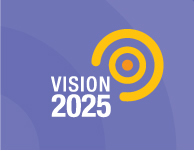|
Frequently asked questions (FAQs)
Why
is Bible translation so important?
Because the Scriptures
are essential for evangelism, discipleship, and church growth.
Jesus told His followers to take the Gospel to all the
world, but there are still hundreds of language groups
which don't have God's Word in their mother tongue – the language they understand
the best. History shows that there has never been a strong
indigenous church without the translated written Scriptures
used by indigenous leaders. Missionaries from every mission
and denomination depend on Scriptures in the language of
the people with whom they work to make a lasting impact.
back
to top
How long does
it take to translate a New Testament?
From first writing down
a language to printing a complete New Testament it can
take 5 to 20 years, depending on many factors such as closeness
of language to an existing translation, technology, the
ability of the local people to help in translation, living
conditions, health of the translators and their other responsibilities.
While a few people are involved from start to finish many
others add vital input throughout the process.
back
to top
Where is work
being done?
In more than 70 countries in 1600+ languages,
on all continents except Antarctica! A large portion of the
work in the Americas has been completed, but in Africa, Asia
and the Pacific, there are more than 2,500 language groups
needing translations.
back
to top
How
many people are involved?
Internationally there are
hundreds of thousands involved. For example, the Church
through Wycliffe has more than 7,000 people from over 70
countries directly involved and they are supported financially
and in prayer by well over 100,000 individuals, families
and churches.
back
to top
Who
and what is involved in Bible translation?
Teamwork. There
are many different roles and areas of expertise. Surveyors
carry out initial research to establish translation needs.
Working alongside local people, work is done where needed
to develop an alphabet for each unwritten language, analyse
the grammar, produce primers and teach the speakers to read.
Literacy specialists help train others in order to establish
ongoing literacy programmes and encourage widespread use
of the language in written form. Linguist/translators oversee
the actual translation work and pass on their skills to local
people. Other people specialise in encouraging scripture
use. And of course, there are support workers, such as secretaries,
teachers, accountants, computer technicians and programmers,
mechanics, pilots, printers, media personnel and many others.
back
to top
What initial
training would someone need?
One needs the level of training
and orientation to equip the person for the role that he/she
will be taking. Some roles just require you to be able to
use your existing skills in a cross-cultural context. Others
require specialist courses. One provider is ETP (the
European Training Programme of Wycliffe). More training courses at SIL.
back
to top
Where can I get
copies of Bibles in other languages?
Bible Societies in many countries are able to supply published editions. UBS United
Bible Societies provides links to Bible Societies worldwide.
No Frontiers is
a supplier of Bibles and other resources in over
100 languages.
Lifewords (formerly
Scripture Gift Mission) International provides a number
of shorter scripture booklets.
Campus Crusade can
provide the JESUS film in many commonly spoken languages
in a country (and can order it in lots more). You may need to find your local office.
back
to top
|



